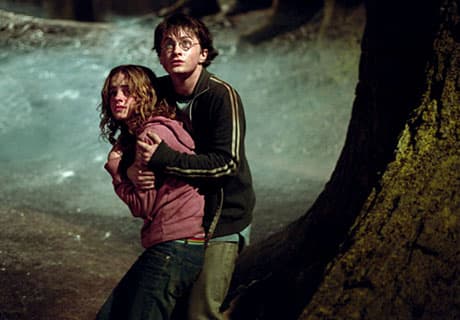With new director Alfonso Cuarón (Great Expectations, Y Tu Mamá También) taking over the robes from former headmaster Chris Columbus (who directed the first two Potter films), Prisoner of Azkaban could have been a disaster, or at least a step back, for the money-printing franchise. Known for "more mature" fare such as Y Tu Mamá También, Cuarón stayed true to the Potter world while stamping it with a less fantastical but darker gothic feel, delivering the best "film" in the Potter series yet. But despite Cuarón's vision of the Potter-verse being the most realised so far, the story (despite its easy flow, strong new characters and Star Trek-like temporal law finale) feels a bit like mid-season episodic television, which you could argue, it is. The third in the as yet unresolved series features a total lack of Harry's arch-nemesis Lord Voldemort, but finds young Potter once again returning to Hogwarts School of Witchcraft and Wizardy, and because he's freakin' Harry Potter, he once again has to face another unspeakable evil on top of the everyday abnormality of a magical educational system. The "big bad" that's not Lord Voldemort, in the case of Azkaban, is Sirius Black, an escaped lunatic somehow connected to Harry and the death of his family, and the unleashing of the Dementors, Death-inspired guards from Azkaban prison sent to recapture Black, who also take an unhealthy interest in Harry. While strangely lacking in commentary, the extras feature a very complimentary dual-interview with Cuarón and author J.K. Rowling, a number of interactive features aimed at the kiddies (which, you could argue that the film, with its darker tone and maturing cast, is less directed at) and an interview with the principals, annoyingly featuring the talking shrunken head. However, after three movies (with more to follow), it's clear that the Potter magic is still potent. (Warner)
Harry Potter and The Prisoner of Azkaban
Alfonso Cuarón

BY Chris GramlichPublished Dec 1, 2004